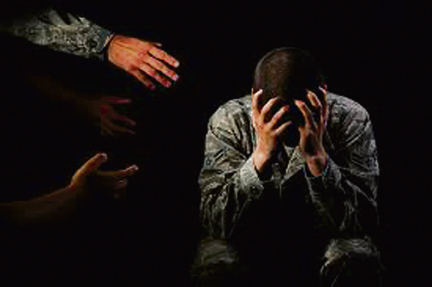July 29 | ![]() 0 COMMENTS
0 COMMENTS ![]() print
print

Mental health every bit as important as physical
Fr Ronald Rolheiser
As young boy, I longed to be a professional athlete but I had to soon accept the unwelcome fact that I simply wasn’t gifted with an athlete’s body. Speed, strength, coordination, instinct, vision, I got by in ordinary life with what I had been given of these, but I wasn’t physically robust enough to be an athlete.
It took some years to make peace with that, but it took me even longer, well into mid-life, before I came to both acknowledge and give thanks for the fact that, while I wasn’t blessed with an athlete’s body, I had been given a robust mental health, and that this was a mammoth undeserved blessing, more important for life than an athlete’s body.
I had often wondered what it would be like to have an athlete’s body, to possess that kind of speed, strength, and grace, but I had never wondered what it must be like not to have a strong, steady, resilient mind, one that knows how to return a lob, split a defense, not be afraid of contact, absorb a hit, and not let the rigors of the game break you.
And that recognition was bought and paid for by some of the most painful moments of my life. As I aged, year after year, I began to see a number of my former classmates, colleagues, trusted mentors, acquaintances of all kinds, and dear friends lose their battle with mental health and sink, slowly or rapidly, into various forms of clinical depression, mental paralysis, mental anguish, dementia of various kinds, dark personality changes, suicide, and, and worst of all, even into murder.
Slowly, painfully, haltingly, I came to know that not everyone has the internal circuits to allow them the sustained capacity for steadiness and buoyancy. I also came to learn that one’s mental health is really parallel to one’s physical health, fragile, and not fully within one’s own control.
Moreover just as diabetes, arthritis, cancer, stroke, heart attacks, amyotrophic lateral sclerosis, and multiple sclerosis, can cause debilitation and death, so too can mental diseases wreak deadly havoc inside the mind, also causing every kind of debilitation and, not infrequently, death, suicide.
How might one define robust mental health? Robust mental health is not to be confused with intelligence or brilliance. It’s neither. Rather it is steadiness, a capacity to somehow always be anchored, balanced, buoyant, and resilient in the face of all that life throws at you, good and bad. Indeed, sometimes it can be a positive blockage to creativity and brilliance. Some people, it seems, are just too grounded and sane to be brilliant!
Brilliant people, gifted artists, poets, musicians, not infrequently struggle to stay solidly grounded. Brilliance and steadiness are often very different gifts. Through the years I have been writing on suicide, I have received many letters, emails, and phone calls, with anguished concerns about understanding mental health. One letter came from a woman, a brilliant psychoanalyst, anxious about her own steadiness and that of her family, who wrote: “Everyone in my family is brilliant, but none of us is very steady!” Of course, we all know families where the reverse is true.
In short, we need a better understanding of mental health; perhaps not so much among doctors, psychiatrists, and mental health professionals, where there is already a considerable understanding of mental health and where valuable research goes on, but within the culture at large, particularly as this pertains to suicide.
When we see someone suffering from a physical disability or a bodily disease, it’s easy to understand this limitation and be moved to empathy. But this is predicated largely on the fact that we can see, physically see, the disability or the sickness. We may feel frustrated, helpless, and even angry in the face of what we see, but we generally understand. We get it! Nature has dealt this person a particular hand of cards, no one’s to blame!
But that’s not the situation with mental health. Here the disability or sickness is not so overt or easily understood. This is particularly true where the breakdown of a person’s mental health results in suicide. For centuries, this has been badly misdiagnosed, not least morally and religiously. Today, more and more, we claim to understand, even as we don’t really understand. A deeper, more-intuitive eye is still required. We still don’t really understand mental fragility.
Fr Ronald Rolheiser is a Catholic priest and member of the Missionary Oblates of Mary Immaculate. He is president of the Oblate School of Theology in San Antonio, Texas. Visit his website at: www.ronrolheiser.com











